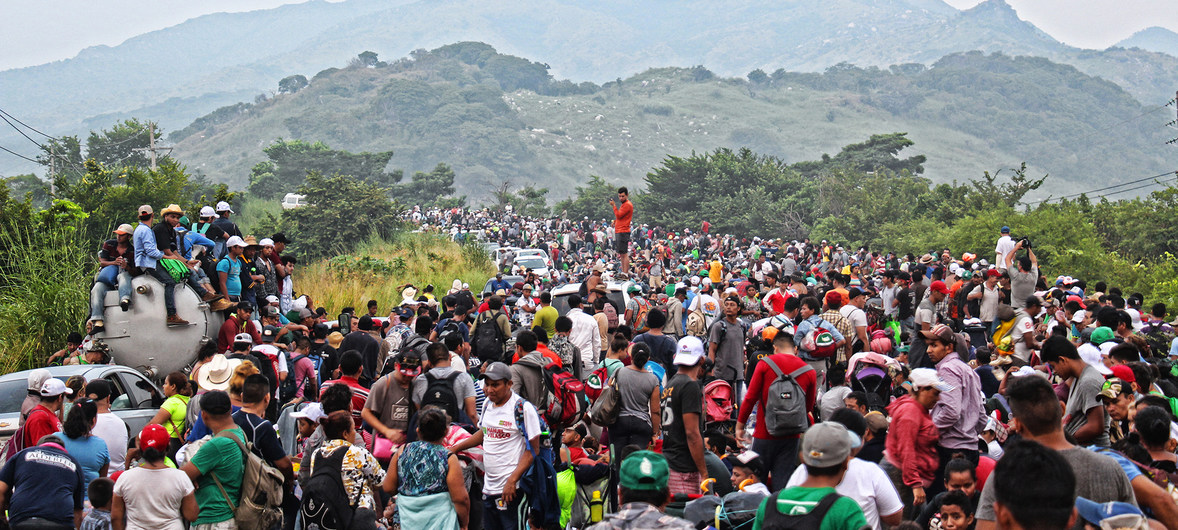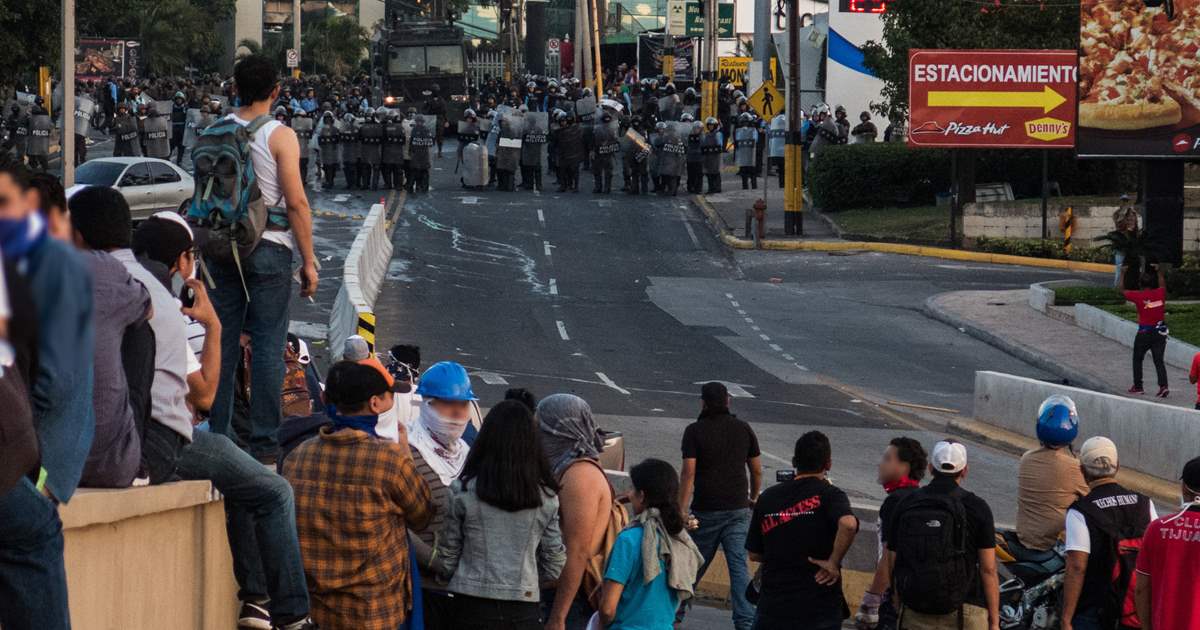
Central America climate crisis fuels migration
Commentators have noted the roots of the current massive migration from Central America in the political economy of the free trade order. The US-led repression and counter-insurgency in the isthmus in the 1980s allowed the imposition of “free trade” or “neoliberal” regimes in the generation since then—culminating in the passage of CAFTA. This, in turn, has exacerbated the expropriation from the peasantry of their traditional lands by agribusiness and agro-export oligarchies. But this dynamic is now being augmented by factors related to political ecology—the degradation of the land itself due to climate destabilization. (Photo: IOM)



